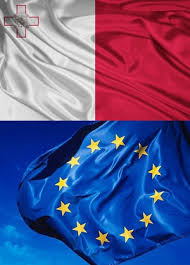
Maltese is an official EU language, This is what it means in practice?
Currently, the EU has eleven official EU languages, although it has fifteen member countries. This is because in the case of Ireland, the English language is used, whereas German, French and Dutch cover the language needs of Luxembourg, Belgium and Austria. Gaelic (Ireland) and Letzebuergesch (Luxembourg) are not official EU languages.
After enlargement the EU will have around twenty official languages, including Maltese. The EU treaties will need to be changed (Article 314) to insert Maltese and the other new official languages of the Union. There are three main implications that result from this.
Firstly, all EU laws and official documents will need to be translated into Maltese. This includes the Official Journal of the European Union which is similar to our Government Gazette.
This point is particularly important because it means that all EU laws that will bind Maltese citizens will be available in a language that we all understand. Being informed and being heard in your own language goes to the very heart of democracy.
Secondly, Maltese citizens may address EU institutions, such as the European Commission and the European Parliament, in Maltese. Any citizen of an EU country can submit a complaint in writing to the EU institutions. Maltese citizens would be able to submit their complaint in Maltese. And if they do so, they will get a reply in Maltese.
Thirdly, our Maltese representatives in EU institutions would be able to speak in Maltese. This includes sessions of the European Parliament. So far, whenever Maltese delegations go abroad, they have always spoken in English. Now they will also be able to speak in Maltese if they choose to do so.
There are other practical consequences. For instances, whenever job opportunities with EU institutions arise, these would be open to EU citizens who would need to be able to speak in two or more official EU languages. The fact that Maltese will be regarded as an official EU language means that Maltese citizens applying for such jobs would not be disadvantaged at having their mother tongue disregarded. Instead, Maltese will be counted as a valid language for the selection requirements.
Many rightly question why the EU should have so many official languages. The answer is that the EU is based on a diversity of different cultures and different languages. This makes multilingualism an essential ingredient of the building of Europe. If the EU had to repress different languages, it would probably not have come so far.
In brief, this is what we mean when we say that Europe is based on "unity within diversity".
This may explain why the very first law that was adopted by the EU in April 1958 was to set the conditions for the use of official languages. This law � which will now need to be changed to include Maltese � states that the official languages of the Union shall be both official languages but also working languages of the institutions. In other words, they are not just used on official occasions or just for translation of laws.
However, EU institutions may stipulate in their rules of procedure which of the languages are to be used in specific cases. In practice, on a day-to-day basis the normal working languages that are used say, in the European Commission, are English, French and increasingly, German.
But the above does not mean that there are no difficulties linked with having so many official languages. Or that there is no price to pay.
Quite the contrary. Having as many as twenty or so official EU languages will create several administrative problems that need to be overcome through careful organisation. There will also be practical difficulties that need to be ironed out. For instance, is there anyone who can translate Maltese into Slovene or Estonian into Maltese? Although, Maltese are known to be found everywhere, such people are likely to be scarce.
As a result, new formulas will need to be found, for instance by using relay languages. This means that Maltese would be translated into English and then from English to the other languages � and vice versa.
And it is also quite costly. The EU employs more translators than any other organisation in the world. Currently, the official languages cost the EU budget around two euros (EUR2) per person. This bill will clearly grow after enlargement.
Costs cover the recruitment of translators from each new country to work on translation of documents and simultaneous interpretation during conferences. In a recent document, the Commission estimated that for each new official language, the EU will need 110 extra staff for translation and 40 new interpreters, between permanent and free-lance staff. That also applies for the Maltese language and these recruits will clearly need to be Maltese.
In Malta, ahead of membership, several translators have been engaged locally to translate all EU treaties and laws (acquis communautaire) that exists so far. After membership, translation to and from Maltese will be carried out by the Maltese-language translation department within the EU.
